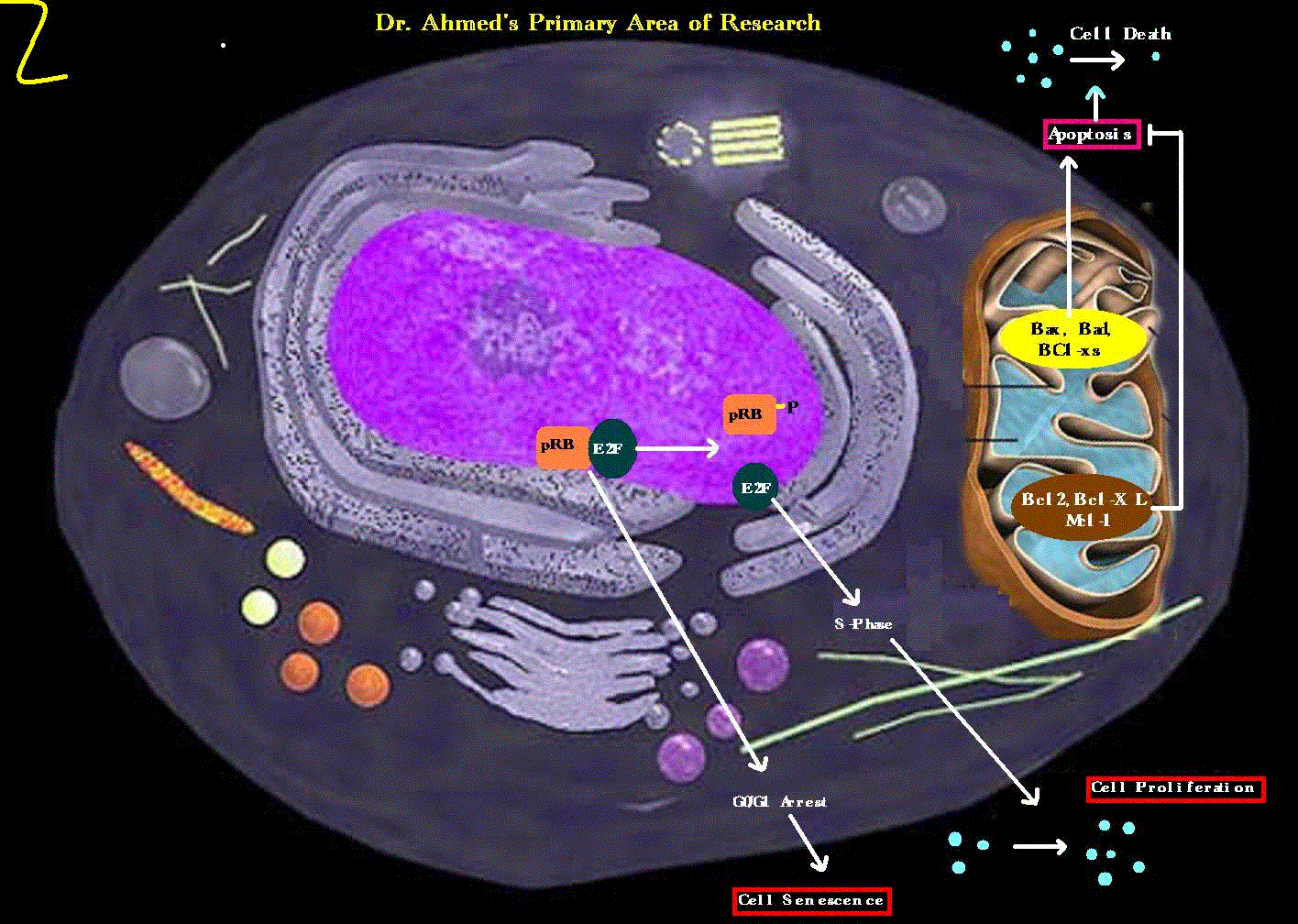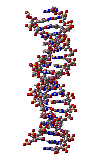|
|

|
Radiation-induced
signal transduction and regulation of apoptosis in
solid tumors
The
process of growth inhibition and apoptosis require coordinate
expression of
specific genes. Cellular proliferation is a complex process involving
both
stimulatory and inhibitory signals. Abnormal proliferation
observed in
cancer cells is caused by mutations that either increase positive
signals or
decrease negative growth control signals or both. Thus, for a cancer
cell to
respond to chemotherapy or radiation therapy, genes regulated during
growth
inhibition and apoptosis needs to be functional. However, most
tumors
acquire genetic mutation in these key regulatory genes disrupting
either one or
both of these pathways. This allows a tumor cell to acquire
resistance to
cell-killing agents and thus poses an important challenge in
controlling these
aggressive tumors. Gene expression studies revealed that there
exists
more than one pathways regulating growth inhibition and apoptosis
processes. The few important pathways include: (1) pathways
mediated
through transcription factors (such Egr-1 and p53) to induce cell cycle
arrest
and apoptosis; (2) pathway mediated through TGF-b signaling for
negative growth
regulation; and (3) pathways downstream to p53 and TGF-b acting as
cross-point
regulators that can induce, enhance, delay or inhibit apoptosis (bcl-2,
bax,
par-4 etc).The process of growth inhibition and apoptosis require
coordinate
expression of specific genes. Cellular proliferation is a complex
process
involving both stimulatory and inhibitory signals. Abnormal
proliferation
observed in cancer cells is caused by mutations that either increase
positive
signals or decrease negative growth control signals or both. Thus, for
a cancer
cell to respond to chemotherapy or radiation therapy, genes regulated
during
growth inhibition and apoptosis needs to be functional. However,
most
tumors acquire genetic mutation in these key regulatory genes
disrupting either
one or both of these pathways. This allows a tumor cell to
acquire
resistance to cell-killing agents and thus poses an important challenge
in
controlling these aggressive tumors. Gene expression studies
revealed
that there exists more than one pathways regulating growth inhibition
and
apoptosis processes. The few important pathways include: (1)
pathways
mediated through transcription factors (such Egr-1 and p53) to induce
cell
cycle arrest and apoptosis; (2) pathway mediated through TGF-b
signaling for
negative growth regulation; and (3) pathways downstream to p53 and
TGF-b acting
as cross-point regulators that can induce, enhance, delay or inhibit
apoptosis
(bcl-2, bax, par-4 etc).
|

|
|
Treatment
strategies such as chemotherapy and
radiation eliminate malignant cells by the induction of apoptosis as
well as by
"mitotic death". For example, therapeutic ionizing radiation
can cause DNA strand breakage or distortion of the DNA nucleoprotein
conformation which may transduce signals that result in activation of
early
response genes (c-jun, c-fos and Egr-1) whose gene products may then
stimulate
later genes. These later genes (TNF-a,
TGF-b, p53) are important in
cellular
response to radiation injury (such as cell death). To understand
the
impact of "complex dysregulated gene alterations" on radiation
response, Dr Ahmed focused his research on three important pathways:
(1) Early
gene transcription factor ?Egr-1? mediated regulation of
radiation-induced
apoptosis; (2) TGF-b
signaling pin radiation response, (3) Effect of Low Dose Fractionated
Radiation in combination with chemotherapy on bcl2 expression and NFkB activity. The tumor
system used in
research area 1
is prostate cancer, the tumor systems used in research area 2 is
pancreas and
lung cancer, and the tumor systems used in the area 3 is head &
neck,
ovarian, lung and pancreas cancers. signaling in the regulation of
radiation
response; and (3) Effect of low-dose fractionated radiation in
combination with
chemotherapy on bcl-2 expression and NFkB activity. The tumor
system used
in research area 1 is prostate cancer, the tumor systems used in
research area
2 is pancreas and lung cancer, and the tumor systems used in the area 3
is head
& neck, ovarian, lung and pancreas cancers.
|
|







